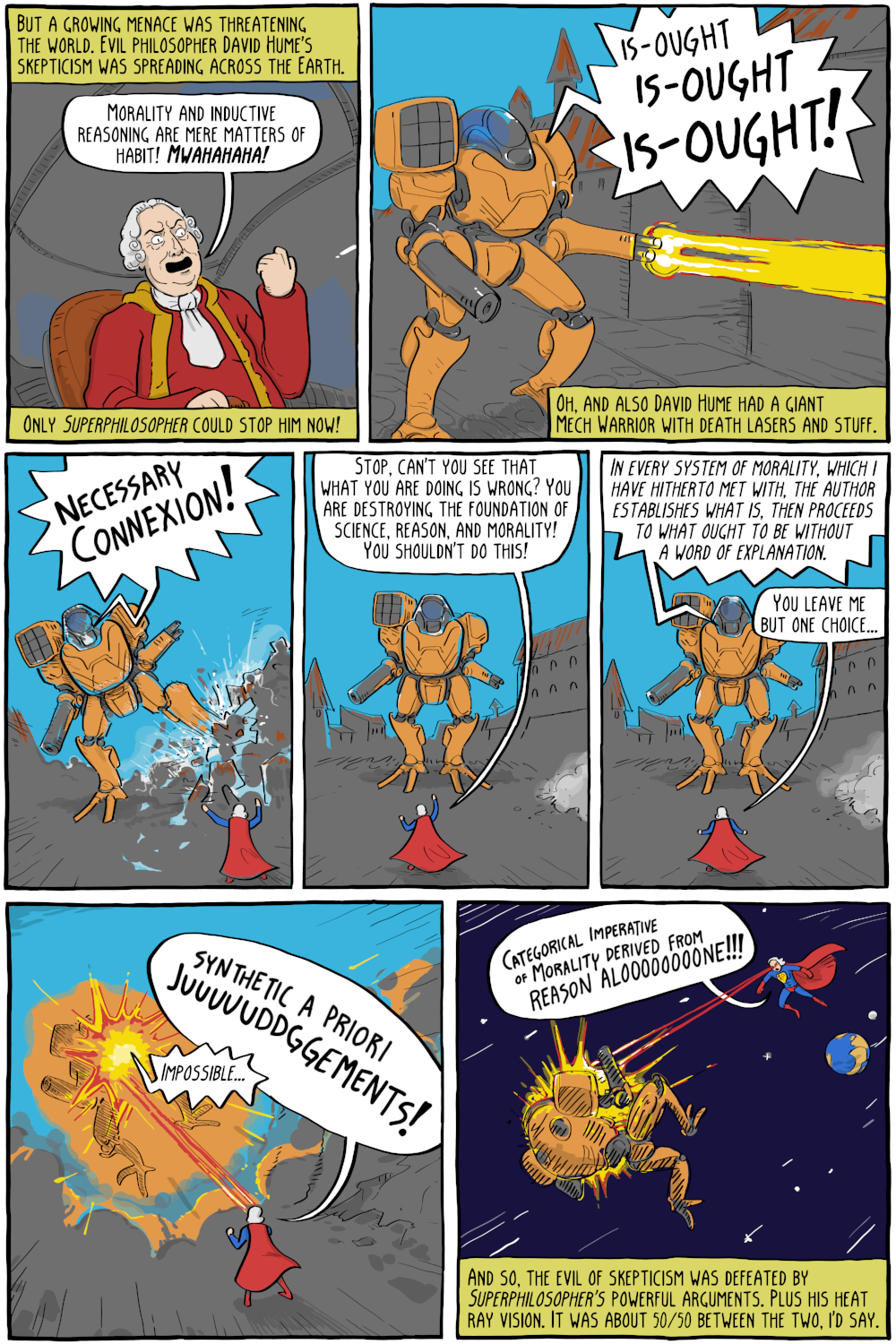


One of the most enlightening conversations I had in college happened with a friend of mine who went to Spelman College and is from Nigeria. We were out at IHOP (I think; probably a safe assumption because we pretty much lived at IHOP), and she was telling a few of us about her preconceived notions about America and…
Not infrequently, I find myself in disagreement with Lawrence O’Donnell. Sometimes I enjoy watching his show, but sometimes he rubs me the wrong way and I turn his program off. One thing I’ve always been willing to grant him, though, is a certain basic level of expertise about how Congress works owing to the fact that he actually worked as a high-level Senate staffer. But what I witnessed last night was shocking. The information he provided his viewers was tremendously misinformed and unsophisticated.
Let me just spell some basic things out that should be familiar to you since I’ve been writing about them incessantly for months, and in some cases since before the inauguration.
First, the president was sold on a dual-reconciliation strategy by Mitch McConnell and Paul Ryan that he was told would enable him to repeal Obamacare quickly and then pivot to tax reform. The strategy would take advantage of the fact that Congress did not pass a budget last year to pass two budgets this year. Health care would be attached to the first budget and tax reform to the second. Using this trick, both could be passed without fear of a Senate filibuster and therefore, supposedly, without having to make any concessions to the Democrats.
This strategy did not work. It never really had a chance of working. I said from the beginning that it was doomed and I was right.
The consequences of Trump adopting this plan have been catastrophic. He hasn’t signed a single significant piece of legislation. He hasn’t been able to keep most of his key promises. His relationships with both the Republicans (for failing him) and the Democrats (for his scorning and disrespecting them) are in ruins.
So, that’s the starting point for understanding yesterday’s meeting between Schumer, Pelosi, McConnell, Ryan, and the White House team.
To make things worse, though, Ryan and McConnell came to the meeting with no plan and no prospects for accomplishing a long list of must-pass legislation through Congress in the twelve legislative days available to them in September. They could ask the president to do certain things, but the only people in the meeting yesterday who could actually deliver something for Trump were the Democrats. That’s point two.
Now, of course, everyone there had their ideological dispositions and items on their wish lists. But there were three things they all agreed on that had no real ideological component.
1. they urgently needed to raise the debt ceiling.
2. they urgently needed to pass a disaster relief bill for Hurricane Harvey.
3. they would strongly prefer to avoid a government shutdown.
For Ryan and McConnell, they knew they needed Democratic votes for the debt ceiling and that Boehner had been pushed out of power for going to the Democrats too many times to lift it. The more Republicans they could get, the better, and if they could get most of them that would be best of all. That’s why they wanted to attach the disaster relief to the debt ceiling. What they really wanted, however, was some cover so they could say the deal they came up with was Trump’s idea, not theirs.
For Pelosi and Schumer, they needed a visible victory. They couldn’t trade their votes for nothing. They were under pressure to get impossible concessions on the DREAM Act and other items, but what they really wanted was a clean disaster relief bill, a clean debt ceiling bill, and a clean continuing resolution that would continue Obama’s budget spending for the entirety of Trump’s first year in office. They didn’t want to fund Trump’s wall or agree to more defense spending or to some plan to offset the increased borrowing they were going to help authorize.
For the White House, what they wanted was to get all three items off their plate. Trump needed the disaster relief bill immediately because FEMA is running out of money. He can’t afford a recession caused by a credit default. And he knew through hard experience that he couldn’t rely on Ryan and McConnell to deliver on those things or to strike a deal within their caucus to keep the government operating. Moreover, all of those items were crowding out the legislative calendar for what he really wanted to work on which is the tax cuts.
It should shock no one that they went into this non-ideological meeting with certain obvious and defined needs and came out of it with almost all of those needs met.
It’s true that Ryan and McConnell did not want a three-month deal. They really did get screwed on that aspect of the deal. If they had their way, the deal would have done away with the debt ceiling forever because it will be a constant threat to their continued careers as leaders of their party. But what they got out of the meeting was the Democratic votes they will need for the debt ceiling and the continuing resolution, and a story line that they were cut off at the knees by the president who sold them out. It’s exactly what they needed.
Schumer and Pelosi look like genius negotiators. And, it’s true, they did very well. But they actually got no more than they were due. In return for their support, they made no concessions and got pretty much nothing else in return. Their one bonus was the short 90-day duration of the deal, because that will allow them to torment the Republicans all over again in December. But they also did the Republicans a big favor by getting them out of a huge jam and giving them back a bunch of legislative days that they can now use to create mischief. In any case, they had needs when they want into the meeting, and those needs were met.
Trump had to pivot to the Democrats at this point not because he’s some brilliant strategist but because, as I have been explaining over and over again, the plan Ryan and McConnell sold him did not work. And he ran out of time and had no other choice remaining to him but to go to the Democrats and beg them for help on the debt ceiling and avoiding a government shutdown. He made sure to spend a few weeks prior to this pivot feeding red meat to his base which helped him disguise his capitulation. Even DACA was a head fake, where he made asking for the DREAM Act seem like he was about to deport the Dreamers. But that’s part of the same pivot. He felt he had to make a decision on DACA and he didn’t want to admit that he wasn’t willing to expel them. In any case, Trump went into this meeting needing the Democrats’ support and with the Republican leaders needing some cover for the deal they were all about to agree to. He got the support and provided the cover.
And I know that it’s true that there is a whole theater surrounding the basic structure and incentives of this meeting. You had Paul Ryan out there before the meeting talking about what a terrible deal Schumer and Pelosi were offering. And you have accounts from inside the meeting that suggest that Trump got bored and was just a bad negotiator and he cut off his Treasury Secretary and his daughter interrupted, etc.
Don’t pay attention to that stuff. That’s all a distraction. Some of it might be part of the sales job. Some of it might be just some granular detail that doesn’t ultimately matter.
What happened was predictable enough that I actually predicted much of it, and some of it in broad outlines months and months ago. Some of it I predicted just the night before last. The Republicans and the White House put off dealing with the Democrats for as long as they could, but I always said that September would bring disaster if they didn’t come to Jesus.
However I put it (“playtime is over” or “the grim waiter has brought the bill”), the ultimate point was that the Republicans cannot do virtually anything without Democratic votes, and that a point in time would arrive when they could no longer avoid facing up to that fact.
If you watched Lawrence O’Donnell last night, however, you would have a completely different impression of what happened yesterday. In his version, the only significant thing that happened is that Trump took the first shitty deal that Schumer offered and knifed Ryan and McConnell without much caring or even necessarily knowing what he was doing. Trump’s a terrible negotiator and some kind of simpleton. McConnell and Ryan got nothing and were completely blindsided. And Schumer is a conquering hero who somehow fleeced them all.
I’m sorry, but that is a ridiculously distorted view of what occurred in the White House yesterday. What really happened is that they all went into the meeting with some very pressing and almost desperate needs and they came out of the meeting with those needs almost perfectly met.
If Ryan and McConnell got the worst of the deal, that’s partly because they had the least to offer and partly because Trump no longer trusts them to deliver, and for good reason. But they wanted to come out of the meeting as the aggrieved party. They needed that.
They had no right to expect more.
There's a concept from computer security known as a class break. It's a particular security vulnerability that breaks not just one system, but an entire class of systems. Examples might be a vulnerability in a particular operating system that allows an attacker to take remote control of every computer that runs on that system's software. Or a vulnerability in Internet-enabled digital video recorders and webcams that allow an attacker to recruit those devices into a massive botnet.
It's a particular way computer systems can fail, exacerbated by the characteristics of computers and software. It only takes one smart person to figure out how to attack the system. Once he does that, he can write software that automates his attack. He can do it over the Internet, so he doesn't have to be near his victim. He can automate his attack so it works while he sleeps. And then he can pass the ability to someone -- or to lots of people -- without the skill. This changes the nature of security failures, and completely upends how we need to defend against them.
An example: Picking a mechanical door lock requires both skill and time. Each lock is a new job, and success at one lock doesn't guarantee success with another of the same design. Electronic door locks, like the ones you now find in hotel rooms, have different vulnerabilities. An attacker can find a flaw in the design that allows him to create a key card that opens every door. If he publishes his attack software, not just the attacker, but anyone can now open every lock. And if those locks are connected to the Internet, attackers could potentially open door locks remotely -- they could open every door lock remotely at the same time. That's a class break.
It's how computer systems fail, but it's not how we think about failures. We still think about automobile security in terms of individual car thieves manually stealing cars. We don't think of hackers remotely taking control of cars over the Internet. Or, remotely disabling every car over the Internet. We think about voting fraud as unauthorized individuals trying to vote. We don't think about a single person or organization remotely manipulating thousands of Internet-connected voting machines.
In a sense, class breaks are not a new concept in risk management. It's the difference between home burglaries and fires, which happen occasionally to different houses in a neighborhood over the course of the year, and floods and earthquakes, which either happen to everyone in the neighborhood or no one. Insurance companies can handle both types of risk, but they are inherently different. The increasing computerization of everything is moving us from a burglary/fire risk model to a flood/earthquake model, which a given threat either affects everyone in town or doesn't happen at all.
But there's a key difference between floods/earthquakes and class breaks in computer systems: the former are random natural phenomena, while the latter is human-directed. Floods don't change their behavior to maximize their damage based on the types of defenses we build. Attackers do that to computer systems. Attackers examine our systems, looking for class breaks. And once one of them finds one, they'll exploit it again and again until the vulnerability is fixed.
As we move into the world of the Internet of Things, where computers permeate our lives at every level, class breaks will become increasingly important. The combination of automation and action at a distance will give attackers more power and leverage than they have ever had before. Security notions like the precautionary principle -- where the potential of harm is so great that we err on the side of not deploying a new technology without proofs of security -- will become more important in a world where an attacker can open all of the door locks or hack all of the power plants. It's not an inherently less secure world, but it's a differently secure world. It's a world where driverless cars are much safer than people-driven cars, until suddenly they're not. We need to build systems that assume the possibility of class breaks -- and maintain security despite them.
This essay originally appeared on Edge.org as part of their annual question. This year it was: "What scientific term or concept ought to be more widely known?"

My parents set up this hodgepodge Christmas display every year. While I have several complaints ranging from “this has a serial killer vibe” to “why is that nutcracker there?” I guess my ultimate issue is with proportion. That moose in the background is only slightly larger than the birds. What topsy-turvy nightmare world is this?!
I’ve stopped commenting on it and have even grown to like it. Because every weird thing our parents do is a result of us breaking their brains when we were kids. Merry Christmas, you made your parents weird.
Unfriendly fucking reminder that the best predictor of mass shootings is not mental illness, but being an angry young white man who has recently experienced rejection and has easy access to guns.
Bringing this back because it makes terrible people angry. And I’ll add a note to all the people saying “But you’d have to be mentally ill to do that!”: Mental illness is, by definition, abnormal. Does “mediocre white boy is so entitled that he resorts to violence when told no” really sound particularly unusual to you?
I devoted my entire graduate studies and thesis on mass school shootings, multiple murderers, and criminal psychology and I can tell you that this is in fact completely true and is suported by an unbelievable amount of emperical, quantifiable data that I slaved over for years. 💯